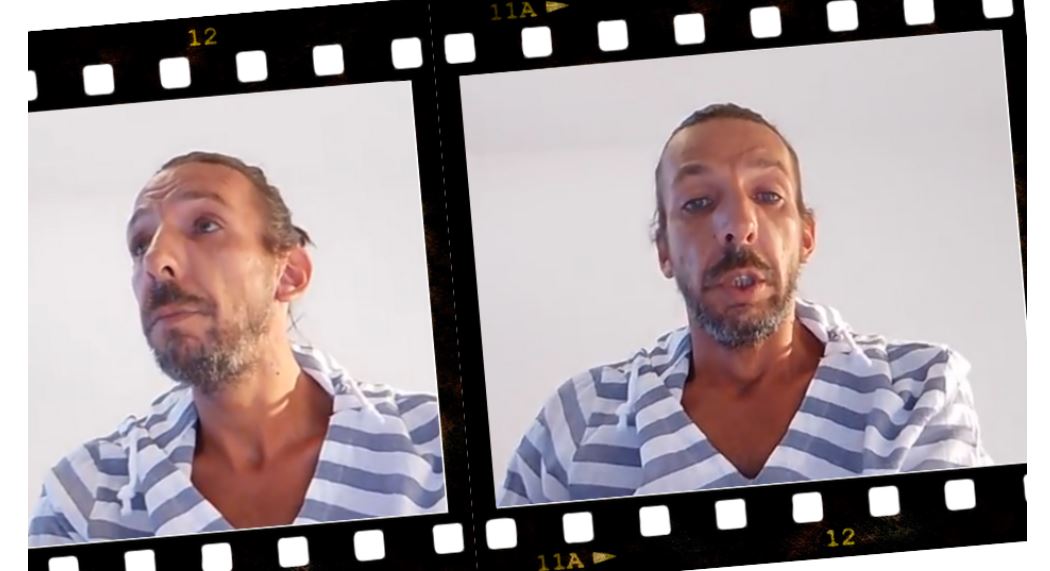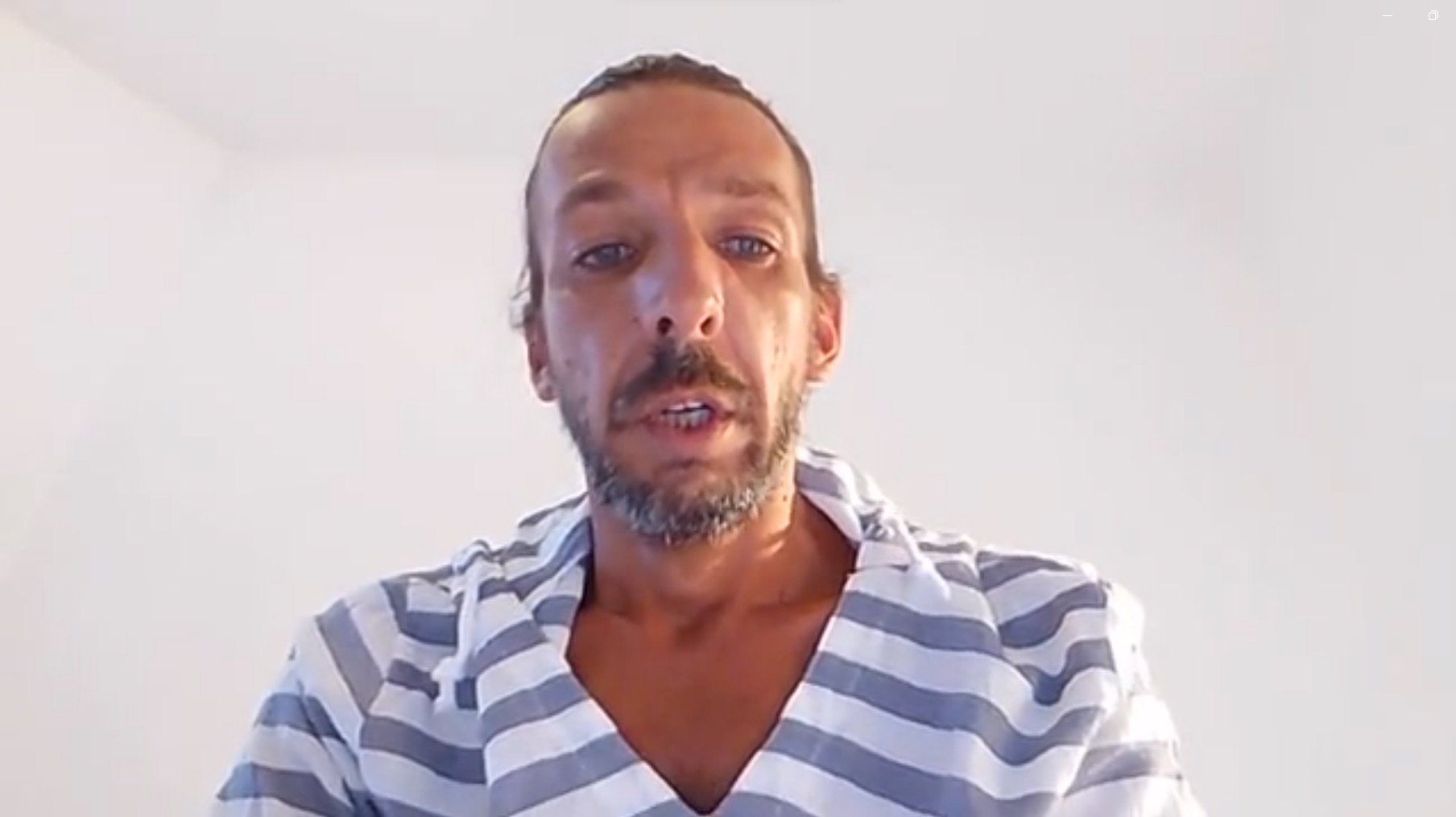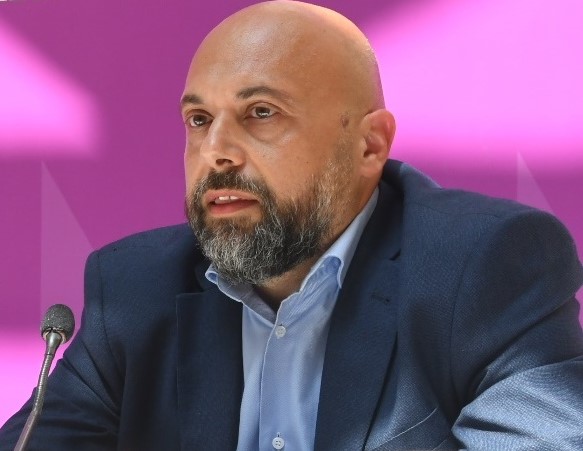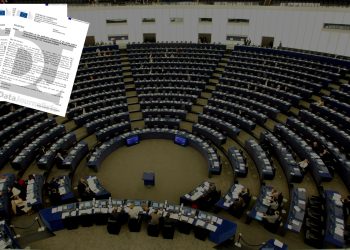- The arrest in Zakynthos in 2021 and the hunt of the agents for the number 1 wanted man.
- Why, while the Court of Appeals in Patras said “no” to extradition, the Supreme Court took over the case?
- He himself denies the charges and claims that he has never visited the US; he is a farmer who runs a farm with animals and trees in Romania and has only attended school for 8 grades.
- Giuliani’s Lawyers: We will appeal to the European Court of Human Rights.
by Vangelis Triantis
The extradition of Sergio Giuliani Nita to the US has been decided by the Supreme Court, with the Minister of Justice, George Florides, now making the final decision on whether or not to extradite him to the other side of the Atlantic.
This is the Romanian-born so-called “hacker”, who was arrested in our country in 2021 and is accused by the US authorities of damaging the US Treasury with more than 50 million euros, through illegal VAT refunds and fictitious companies, after having intercepted the tax data of thousands of Americans.
He denies everything and claims that his involvement in the case was due to a mistake by the US authorities. He even presents himself as a simple Romanian farmer who has nothing to do with computers.

Data Journalists today unravel the thread of this case, which has been of concern to both the Greek and the US authorities for the last few years. What is presented is what is contained in American and Greek documents, as well as testimonies of the American agents who investigated the case.
Who is Sergio Giuliani Nita? Is he really innocent or responsible for one of the biggest frauds against the US Treasury as he is accused of? Let’s take things from the beginning.

In July 2021, Romanian-born Sergio Giuliani Nita was on holiday in Zakynthos with his partner and her mother. Suddenly he was approached by police officers and arrested. Sergio Giuliani seems surprised. The police informed him that he had a warrant for his arrest in the USA and was wanted by Interpol. The US authorities are implicating him in a huge fraud against the US Treasury costing over USD 50 million. From then on, his legal adventure began and continues to this day.
The indictment against Giuliani was issued on February 16, 2021, by the South Florida District Court. The offenses he is charged with include “conspiracy to defraud the United States of America, conspiracy to commit wire fraud, and conspiracy to commit money laundering.”
The American agent and the indictment
A special agent of the Criminal Investigation Division of the US Internal Revenue Service (IRS) had testified before the US judicial authorities before the indictment was drawn up. Something similar to the Greek IRS.
The testimony of the special agent of the US Internal Revenue Service (IRS) before a US court on which the indictment of Giuliani by the US Justice Department and the issuance of an international arrest warrant were based.
The secret agent described in detail what he had found during his investigation. Everything happened between August 2013 and February 2016. Those involved were masterfully intercepting from the Get Transcript service of the US Internal Revenue Service tax data of unsuspecting US citizens, such as birth dates, social security numbers, addresses, etc. They then used this “stolen” data of US taxpayers to submit false income tax returns to the IRS. As a result, they falsely created the false impression that they were entitled to tens of millions of dollars in tax refunds, which the IRS approved. The money from the tax refunds was credited to prepaid card accounts that were also set up with the stolen tax information. The scam didn’t stop there, of course. From the prepaid card accounts the money was then transferred to bank accounts at Bank of America or HSBC. These were accounts opened in the name of shell companies. The money was transferred either by issuing a cheque or by electronic deposits.
The agent who testified before the Court described that during the investigation, he “cooperated” with both banks, the Internal Revenue Service, and the US tax authorities, which he claims were deceived. The agent also claimed that he had received testimony and official statements from US taxpayers whose data had been intercepted.
Τhe mysterious juliensweiss and the Giuliani allegations
Sergio Giuliani was linked to the case through an online alias, “juliensweiss”. US agents testifying in the US relied on encrypted conversations using jabber encryption software between juliensweiss and another person of Russian origin. The latter was allegedly – according to the documents – originally arrested in 2008 in New York for cybercrime, which he confessed to the US authorities. In 2014, the same person allegedly confessed his involvement in a US tax refund fraud. He was subsequently released and managed to flee to Russia. To this day he is still wanted.
Traces of juliensweiss have been found in Romania and Belgium, according to the US authorities. For this reason, American agents were looking for a person with these characteristics. That is, he had a past in Belgium and Romania.
According to Giuliani’s side, his profile was a perfect match for what the Americans were looking for as he lives in Romania and had previously worked in Belgium. Thus, the US authorities were led to the conclusion that Giuliani was the “juliensweiss”. He of course categorically denies this and stresses that he has no involvement in the case. As he claims, he has never visited the United States, he is a farmer who has only attended eight grades at school and has a farm with animals and trees in Romania, where he comes from.
“No” to extradition by the Council of Appeals of Patras
Regarding Giuliani, the US authorities requested in August 2021, in addition to his arrest, his extradition to the US, in order to be tried for the offenses for which he is charged. The Appeals Council of Patras met in November 2021 to consider the extradition request. One would expect that the case would not have required more than two or three sessions. But not in this case. It took more than 14 meetings of the Patras Appeals Council to decide whether or not to extradite the wanted Romanian. Within a period of 2.5 years, the Greek authorities asked their American counterparts to send a wealth of evidence confirming his guilt and, in particular, evidence prior to the arrest warrant issued against him. However, the US authorities never sent all the evidence requested by the Appeals Council.
Finally, on May 3, 2023, the Council of Appeals of Patras, with its decision number 7/2023, ruled against Giouliani’s extradition to the US, on the grounds that the information provided by the US authorities was “insufficient”.
Therefore, “…there is no legal sufficiency of the evidence and therefore no presumption of guilt of the requested person for the acts for which his extradition is sought. This Court of Appeal must therefore give an opinion against his extradition…”, the relevant decision underlines.
After 14 meetings, the Council of Appeals of Patras issued an opinion against the extradition of Giuliani to the US on the grounds that the evidence forwarded by the US authorities to the Greek authorities proving the Romanian’s guilt is not “sufficient”, while, as stated, the US authorities never sent in their entirety the incriminating evidence requested by the Council of Appeals.
“Green light” from the Supreme Court
Five days after the decision of the Council of Appeals of Patras, the Prosecutor of the Court of Appeal appealed against the decision, in order for the Supreme Court to hear the case in the second instance. This was the last day of the deadline set by law for lodging an appeal. Indeed, last July the Supreme Court met to hear the appeal lodged.
Giuliani’s side presented the court with over 150 photographs proving where he was at the time of the offenses. A technical opinion of a computer engineer was also submitted, according to which “there is no match between the accused (i.e., Giuliani) and the user bearing the name juliensweiss”.
Therefore, as this technician argued, “the US method of handling the digital information recovered from Giuliani’s email and the electronic devices of his Russian accomplice was not correct”.
However, the Court took a different view. As highlighted in decision number 1059/2023 that was issued, “the method used by the authorities of the USA that led to the identification of Giuliani with juliensweiss is the most reliable”.
On the contrary, as stated in the decision, the technical adviser “did not carry out a complete check of Giuliani’s electronic traces”, since, as the technical adviser pointed out before the Court, “he did not carry out a search of Giuliani’s email at the email address “giulonline at live dot com”, which the accused himself admitted to owning, nor did he deal with that email address”.
Also, with regard to the photographs submitted by Giuliani’s side, the Supreme Court held that the offenses attributed to him by the US indictment were such that their commission did not require his physical presence in the US. That is, he could do them by means of electronic devices abroad.
In the end, the Supreme Court ruled in favor of Giuliani’s extradition to the USA. The Court also rejected his request to inform Romania about the case so that it could exercise its rights as per relevant jurisprudence to take charge of the case as his home country.
The final decision is of course in the hands of the Minister of Justice, George Florides, who is the only one responsible for deciding whether or not to extradite, since he is not bound by the positive opinion of the Supreme Court.
The decision of the Supreme Court in which the Supreme Court of Appeals advises in favor of the extradition of the Romanian fugitive to the USA, in order to stand trial for the charges against him. The decision was taken in a meeting of only a few hours and the final decision is now up to the Minister of Justice, George Florides.
Giuliani’s lawyers: We will appeal to the European Court of Human Rights

For their part, Giuliani’s lawyers, Andreas Reglis and Pericles Paschakis, in a statement to Data Journalists, claim that their client has “serious cardiac and psychiatric problems”, while they say he has filed a lawsuit for forgery against the US authorities. In addition, they stress, that the defendant is going to appeal to the “European Court of Human Rights” and will claim “enormous financial compensation for the injustice he is experiencing”.
Read the statement of lawyers Reglis and Paschakis in detail:

“Although the thorough decision of the Appeals Council of Patras highlighted the complete lack of evidence that would allow the connection of the person of the wanted hacker with our client and rejected the request for his extradition, the decision of the Supreme Court with a concise rationale transferred the final decision on his extradition to the political level and in particular to the Minister of Justice.
Our client, who has serious cardiac and psychiatric problems, is experiencing the present situation with particular stress. Nevertheless, he is determined, in addition to the lawsuit for forgery he has filed against the US authorities, to appeal directly to the European Court of Human Rights and, in a second stage, to claim huge financial compensation for the injustice he is experiencing.



















Discussion about this post